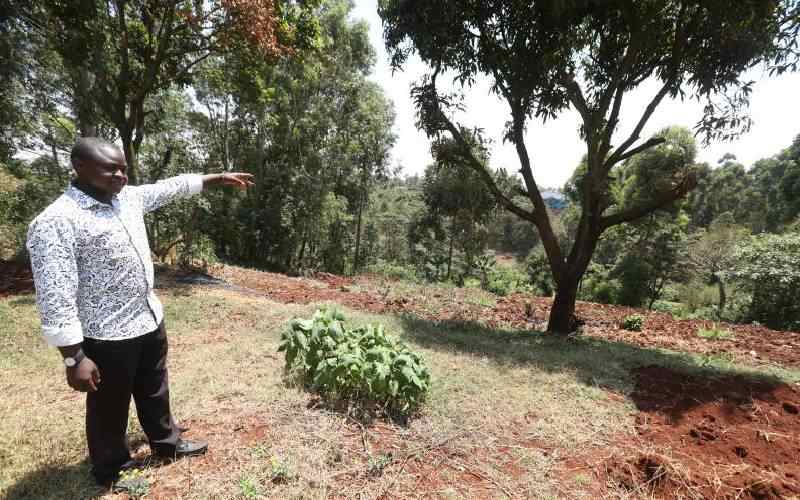×
The Standard e-Paper
Truth Without Fear

Joseph Gacuhi a great-grandson of Serah Nyokabi shows their ancestral land in Wangige area of Kiambu county. [George Njunge, Standard]
One of the most illustrious goat dealers on the western side of the city has been gone for 65 years.